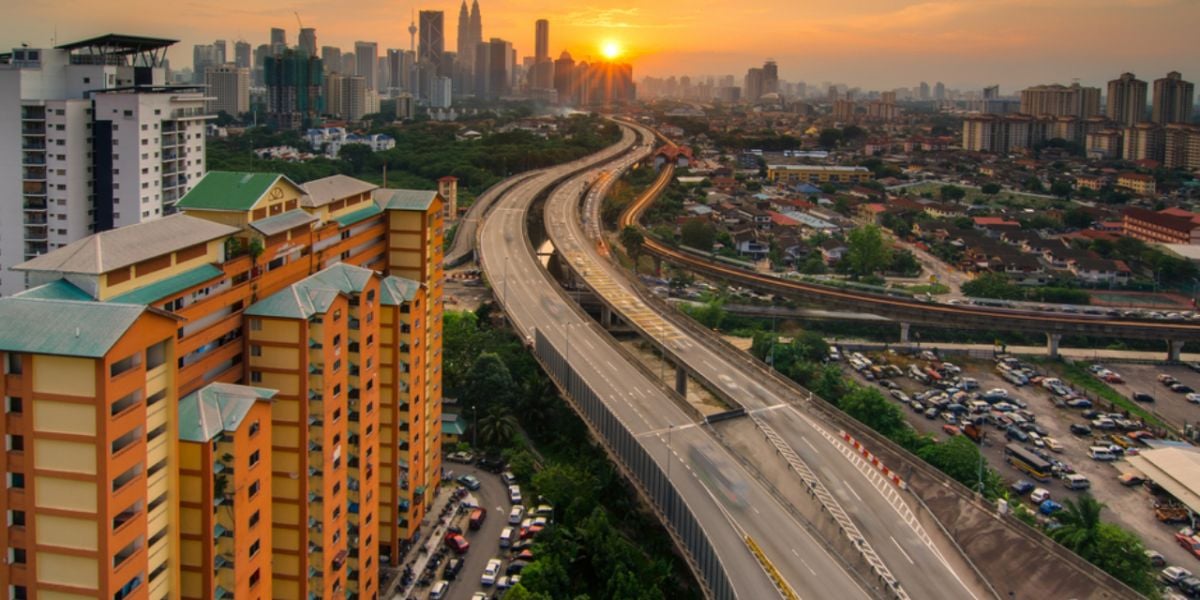
When you plan to move to another country or another city, your first concern is undoubtedly where you are going to live. Although renting apartments, condominiums, or (rarer) houses is a popular option in Kuala Lumpur, buying a property can be an attractive idea if you are looking to settle down for the long term. Plus, it can turn out to be a profitable long-term investment. Before you start viewing properties with potential, you will first need to understand the laws and regulations that govern foreign ownership of property in Malaysia.
Bigger, more populated, and livelier, Kuala Lumpur is unique in Malaysia in many ways, and the local real estate market is far from being an exception to this rule. Everything is always more expensive in Kuala Lumpur than elsewhere in Malaysia. This is the reason why most expats who move to this city choose to rent a home rather than buy one. Local authorities have launched a vast decentralization program in the country, allowing other smaller towns to develop further. Nevertheless, the attractiveness of Kuala Lumpur remains unquestionably the strongest, both for Malaysians and for expatriates.
In any case, the Kuala Lumpur real estate market offers an incredible number of opportunities for those wishing to invest in real estate, whether to afford a pied-à-terre in the former administrative capital or simply live in the heart of Malaysia's most vibrant and modern city. In addition, expatriates have the right to acquire properties in full ownership in Malaysia, contrary to what is done in other countries in the region or on the Asian continent. Apartments, condominiums, penthouses, and houses, the options are numerous and suit several types of budgets, although generally reserved for people with sufficient funds.
Choosing the location of your property
One of the most important factors when it comes to the price of any property you wish to buy in Kuala Lumpur, or elsewhere, is undoubtedly the location. Indeed, as with rentals, the costs of residences available for purchase in the megalopolis vary greatly between the city center and the suburbs for accommodation of the same type. You will mainly find apartments, condominiums, lofts and other studios of different standards in the center, with prices varying accordingly to size, the view, the number of bedrooms and the degree of luxury of the residence.
Expats have mostly invested in areas like TTDI, which boasts a peaceful residential atmosphere, and Mont Kiara, an upscale neighborhood that offers access to international schools. Bangsar has also proven to be popular, just like Damansara.
The size of most condominiums, a favorite choice for many expats buying property in Malaysia, is around 55m² (known in Malaysia as “studio condos”). The most spacious condos, on the other hand, can be more than 180m², and the most luxurious often include a jacuzzi, a sauna and a large common swimming pool. Your choice will obviously depend on your desires and means.
In Kuala Lumpur, there are also about twenty Gated Communities, neighborhoods with guarded and secure access. They would usually lie near the city center. However, only some of them offer properties for sale, and others are only available for rent. For example, you can find 2 to 4-bedroom residences as from RM688,000 in Sunway Belfield, one of Kuala Lumpur's most prized gated communities by expats. The package includes an infinity pool, jacuzzies, tree houses and many other luxurious options.
The big advantage of living in the center is of course the quick access to many facilities and the nearness to a plethora of shops, often located just a few minutes' walk. The city center of Kuala Lumpur also has several international schools with excellent reputation, such as Taylor's International School KL, Alice Smith Primary School or Kuen Cheng Secondary School.
Kuala Lumpur's suburbs are less busy than the city center and as such, have several quieter neighborhoods that are ideal for families. There are several types of houses available, but there are also residential buildings that offer apartments and condominiums on sale. Prices start at around RM300,000, half the price of other properties situated downtown.
The Malaysian real estate market
The real estate market in Malaysia has been in crisis for a few years now. In fact, the supply greatly exceeds the demand throughout the country, and Kuala Lumpur has not been spared. According to Global Property Guide, an online real estate analysis platform, the value of many unsold apartments in Malaysia's biggest cities was estimated to be around RM18.48 billion ($4.41 billion) in August 2021.
The Covid-19 crisis in Malaysia obviously had something to do with it, but the problem dates from well before 2020. This means that the coronavirus only had an accelerating effect on the Malaysian housing crisis. This national problem is due to the construction of countless high-end residences over the past decade across the country.
To address this issue, the Malaysian government has taken several measures. However, Global Property Guide estimates that the results of such measures would only have mitigated effects. To combat overbuilding, the authorities have, for example, tried to control speculation and reduce the number of additional construction sites by discouraging developers. Stamp duty has been revised upwards on properties worth more than RM1 million, from 3% to 4%, while tax on real estate gains has been increased by 5%. Nevertheless, these measures have been eased following the advent of the pandemic in order to provide a minimum of relief to developers and to promote economic recovery by encouraging investment.
Currently, the average value of a terraced house in Malaysia is around RM400,000. For comparison, the average price of properties of the same type located in Kuala Lumpur is worth almost double, or around RM778,000. Prices continue to fall, creating opportunities for potential investors willing to bet on a recovery in the Malaysian property market soon, but it can be a risky bet. The beneficiaries of this situation are undoubtedly those who plan to settle long-term or permanently in Malaysia and buy a property to live there, but also potential tenants who can negotiate better prices.
The MM2H Program
The expatriation-focused Malaysia My Second Home (MM2H) program allows foreigners to buy property in Kuala Lumpur at a lower price than what is generally available to them, in strict compliance with the country's applicable laws. This is a government initiative aimed at facilitating the transition to Malaysia. Applicants must prove that they are in possession of liquid funds of at least RM1.5 million. The membership requirements of the MM2H plan are strict, but the advantage lies in access to real estate at low prices. It should be noted that the MM2H program is reserved for those who wish to settle in Malaysia in the long term since the beneficiaries will have automatically been granted a 10-year visa.
In addition to these requirements, real estate ownership - with or without the MM2H scheme - also implies a range of additional legal fees and obligations. The scheme, like the acquisition of property in Malaysia in any form, is of course subject to Malaysian tax regulations.
Home loans in Malaysia
As mentioned earlier, the budget for buying a property in Malaysia depends on different factors. As a foreign resident, be aware that you can qualify for a home loan from a local bank, under certain conditions. But generally, the funds required by expats, to obtain the right to purchase property or invest in real estate in Malaysia, are assumed to come from their pockets.
If you are part of the MM2H program or have a business in Labuan, you can apply for a home loan. If so, the bank will assess the value of the property you wish to purchase. Banks are usually willing to offer a home loan to foreigners based on such valuation but will often offer a loan between 75% and 90% of the total property value.
On the other hand, those who are not members of the MM2H program will generally find it more complicated to obtain a mortgage in Malaysia. The bank's agreement depends on various factors, such as the value of the property you wish to buy, the fatness of your bank account, your salary, and/or your ability to make a deposit. Keep in mind that banks may run an appraisal of the property before deciding whether or not to grant you a home loan. This is not as systematic as in the case of members of the MM2H program, but it may happen sometimes, whether for foreign buyers or for Malaysian citizens.
There are also other packages intended to help property buyers by offering a reduction in the interest rate, for instance. This is the case for the First Time Buyer Loan, the objective of which is to facilitate the purchase of a property in cases where the buyer carries out his very first real estate transaction. In addition, each bank grants home loans with bespoke formulas that match accordingly to the customer's needs. It's up to you to do your research and find the formula that best suits your needs.
To help you calculate the interest rate that will be attached to your loan and the loan repayment conditions, several online platforms provide Internet users with automatic calculators such as WISE, PropertyGuru or Global Property Guide. Also be aware that interest rates are usually accompanied by a mention BR, which stands for Base Rate, which allows you to compare the rate offered to the base rate of the Malaysian market. In general, the interest rates offered by local banks are around 3 or 4%, but it is possible to find lower rates depending on the formulas chosen and the purchasing facilities available in Malaysia.
Useful links:
We do our best to provide accurate and up to date information. However, if you have noticed any inaccuracies in this article, please let us know in the comments section below.








